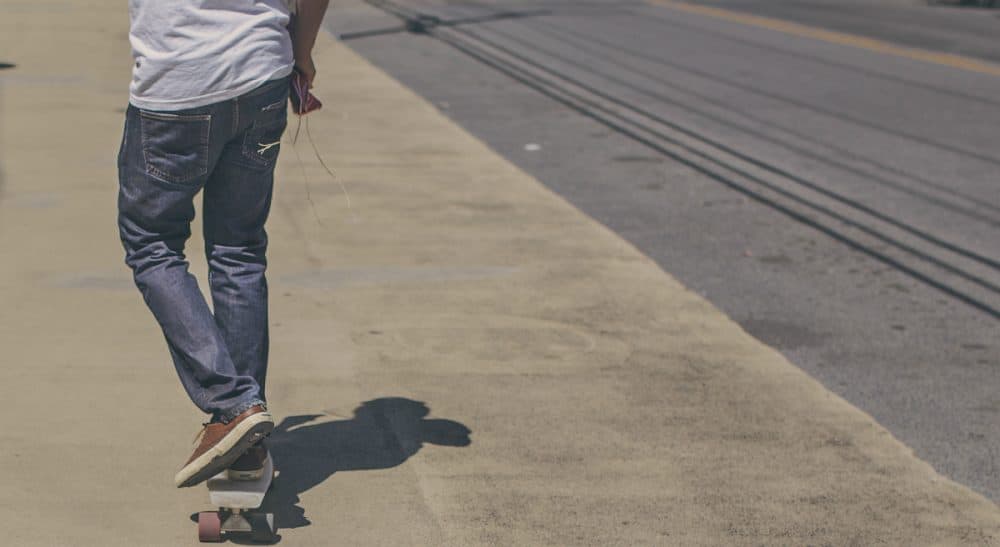Advertisement
Little Boy, Lost: A One-Time Teacher Recalls The Child She Couldn't Save
Resume
In the winter of my third year as a fifth grade teacher, I faced the wrenching task of readying one of my young students for his immediate transfer to foster care.
That day started out like so many others: hurrying my family out the door, the brief luxury of some quiet planning time once I arrived in my classroom, and the palpable wave of pre-adolescent energy when my students charged into the room. We followed a daily ritual: taking attendance, collecting permission slips, checking homework and launching into our lessons. This particular student, who I will call Steven, had no papers, no homework completed, nor any breakfast in his belly coming into school each day. He represented a cohort of extremely disadvantaged children within the district’s socioeconomically diverse population.
By the time he met me in fifth grade, Steven was familiar with a level of trauma many people don’t witness in a lifetime. His story was grim: an incarcerated father and a mother struggling to raise Steven and his younger sister while bearing the scars of domestic abuse. Coming to school was a chance to experience a sense of normalcy and safety he couldn’t get at home. The deck was stacked squarely against this boy. In the face of such odds, however, I chose to believe -- to hope — that the formative time Steven spent in my classroom would make a positive impact in his otherwise very troubled life.
The wall phone rang shrilly. Always grateful for a break from the lesson, the kids trained their eyes on me as I picked up the receiver. When I recognized it to be one of the administrators, I wedged my body halfway out the door for some privacy.
"Hi, Anne? I’m going to need you to get Steven ready to go. Right now."
There was urgency in her voice.
'Steven' had no papers, no homework completed, nor any breakfast in his belly coming into school each day.
"Go? Where? Does he know? Why weren’t we given more notice?"
As I gripped the phone listening to her brief explanation that had more to do with privacy rules than facts, I looked back over the heads of my students, resting my eyes on Steven, just 10 years old. He sat low in his chair, near the front of the room where I had figured out early on he would stay most engaged, his blond hair a little shaggy, fingernails dirty, his favorite basketball shoes unlaced, fiddling with his pencil. How on earth was I going to do this?
The lunch bell sounded, and I arranged for another teacher to escort my students to the cafeteria to give me a few minutes to think. I went to my bookcase and selected a couple of new paperbacks — one a biography of a popular baseball player and the other a collection of short stories — and I wrapped them both in some colorful tissue paper I always kept in my desk for special occasions. I scribbled a brief note of encouragement and hastily sealed the envelope.
Steven appeared at the classroom door, having been plucked from his lunch table before recess. He stared up at me, his sad eyes telling me volumes. No stranger to crisis, he knew something big was happening. My words over the next few moments would solidify his worst fears. I feared that he would forever associate me with his displacement.
I forced myself to adopt a cheerful tone, in spite of the sorrow I felt in my core. I told Steven that he was going to meet some new people who would take care of him for a while. I gently suggested, "Let's pack up your backpack, OK?"
Steven protested. "Does my mom know? My mom wouldn’t let me go away."
What can you possibly say to a child asking such a painful question?
Because of the privacy rules that prevail in situations like Steven's, I had no idea whether or not his mother knew. So I tried to comfort him by promising that she would visit him in his new surroundings as soon as she could.
"I don’t want to go," he said.
I told him that it would be a good place, that he'd meet new friends. "I’ll bet they like to skateboard and play baseball there, too."
Despite all my hope and best intentions, I was powerless against his parents’ choices, their unwitting perpetuation of poverty and frustration, society’s harsh expectations and an overburdened state bureaucracy.
"Why can’t I stay here with you?" Steven asked.
And it went on like that, back and forth, his quiet but persistent questions, my strained optimism, until the phone interrupted us again. It was time to walk him down to the lobby. I vaguely remember sliding the books and card into his backpack and telling him to open up a little present from me once he got onto the bus. I gave him a hug and, moments later, Steven was gone.
As the years went on, I made some occasional inquiries, but I was never able to learn much about where Steven had landed after leaving my classroom.
All that changed just the other day, when I opened up the newspaper to find him in the police report. Steven, now aged 19 and living a few towns away, was arrested and charged with domestic violence. I know that it is my Steven, arrested for the same reasons that had caused him to be sent away all those years ago. The cycle of violence is complete.
Despite all my hope and best intentions, I was powerless against his parents’ choices, their unwitting perpetuation of poverty and frustration, society’s harsh expectations and an overburdened state bureaucracy. I wonder who will be there to protect his future children and others like them from the same dangers that he faced? He’s a man now, a delinquent in the eyes of the law. But in my mind, he remains a young boy at risk, and I will always regret not being able to shield him from this life of violence and sorrow.
